#soa role play
Explore tagged Tumblr posts
Text
Good evening, fuckers. What's everyone in to? This place got any life?

#soa rp#1x1 rp#literate rp#sons of anarchy#soa roleplay#soa role play#au rp#au rper#sons of anarchy rp#open starter#come say hi#bored af#mature rp#rp blog#rp account#tumblr rp#tumblr role play
1 note
·
View note
Text




Obsessed
Andrew Lincoln
Rick Grimes in The Walking Dead
Charlie Hunnam
Jax Teller in Sons of Anarchy
#rick grimes#jax teller#andrew lincoln#charlie hunnam#sons of anarchy#the walking dead#twd#soa#my celebrity crush#idk why but these men playing these roles just did somethin to me#my dream world#dream shifting#dr shifting#fantasies
8 notes
·
View notes
Text

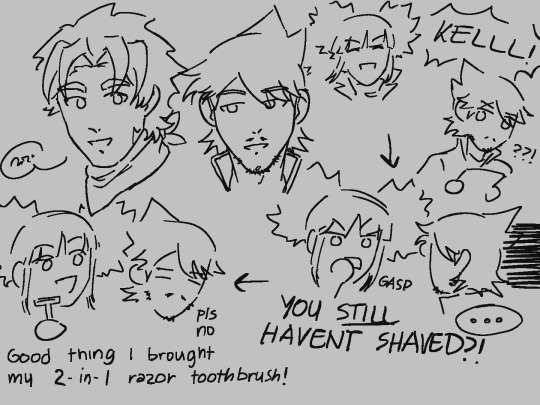
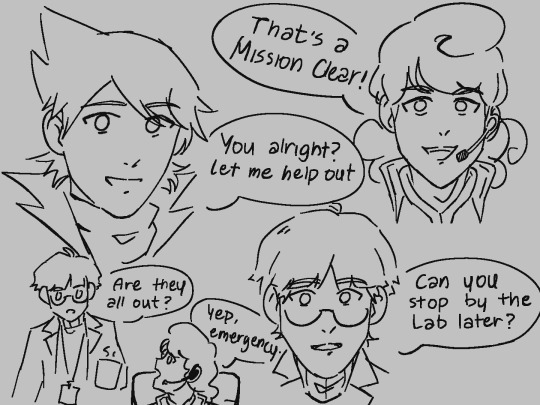
aged up
#pokemon ranger#shadows of almia#3atonage#aged up#its nice to think of them becoming senior rangers...#also a bit of pokemon uranium kellyn#are we allowed to talk about that?#he went so downhill in it#while im not fond of his characterization in it as our FATHER#i do appreciate the developers including rangers and giving them a big role#you can imagine my surprise when i started up uranium#and it said kellyn was our father#right when i started playing soa#im sad only kellyn appears though#anyways i should continue playing uranium#since ive practically finished soa#isaac with the glasses was also borrowed from jp twt#hes so cute w em
50 notes
·
View notes
Note
lol their calling kenneth choi an coke head because of an deleted pics of three lines of salt on a table
.... okay yall cannot send me shit like this so blatantly because i legit almost choked/inhaled and ultimately perished on my fucking fruity pebbles...
Are they serious?? Like.. seriously? Because I do not have the strength to go look for their tweets. 😭
I will, however, say what I see from the picture and why there is no way in hell it's coke.
1. The picture in question: (with zoomed in version)


2. Are they stupid?? (Yes.) Because you never! Never ever ever EVERRRRR snort coke on a porous surface. THAT is a wooden chopping board. Have you ever done coke? No? Didn't think so. (I haven't either btw) BUT do you know how expensive coke is??? Survey says: VERY. There's a reason why in movies and shit they do lines off of mirrors or non-porous surfaces... or bodies, but like let's not go THERE.
3. Is this not a bts picture? Kenny has played roles in the past that do drugs. (Off the top of my head, Wolf of Wallstreet and SoA) It's probably weird to know this, but there are people who teach actors how to look legit doing drugs. Kenny was probably just separating the salt or (most likely flour as it's a cutting board) between takes...
4. You're fucking stupid if you believe that THAT is actual cocaine and anyone who does is automatically 7 in my mind.
That's all I care to say.
54 notes
·
View notes
Text

Just a lil something I’m playing around with 🖤 (Absolute spoilers - these are set as an AU season 7)
I always picture my fics as actual episodes in my head, so why not write them that way hehe. Something different, kinda cool I guess.
These ‘episodes’ will still be Jax x Reader (with limited appearance descriptions so everyone can feel connected within the role)
It’s not canon, it’s not professional I’m literally running on vibes & my SOA obsessed imagination. (Also you all know me, I’m a visual babe so there will be some pics/gifs scattered through, not so script like but who cares)
TW: Explicit language, threatening language, drugs use, guns, violence, smut, murder, basically anything that you’d see in an actual episode lol.
Script key: EXT. - Exterior. Outside locations. INT. - Interior. Inside locations. EXT. / INT. - Exterior & Interior. Mixed locations. SFX - Sound effects. ^just because I had no fucking idea before writing this lol.
SCRIPTED EPISODES MASTERLIST:
EPISODE ONE Opening Scene / Trailer Rest of episode (Coming soon)
#secretly samcro#sons of anarchy imagine#jax teller x reader#sons of anarchy#jax teller#samcro#jax teller one shot#jax teller imagine#charlie hunnam#soa#secretlysamcro#jax teller fanfiction#jax teller x you#jax teller smut#sons of anarchy fanfiction#secretleysamcro#jax teller x y/n#soa fanfic#jax teller x reader smut
40 notes
·
View notes
Text
Really hate the way Amy is either censored on watered down in three areas, and how it's been done for the most stupid of reasons and always tp appease to people who should had been gatekeep'd.
Personality. What we have now is a very sanitized take on the character that seeks to subdue her affection for Sonic into near nothing, as well as the very sexist idea of making her the "voice of reason", the "mature one", the "level headed" one of the group simply because she is the sole girl in the group. We had a similar thing happen in Fleetway's Sonic the Comic where Amy went from having an actual personality to becoming a "role model" because of positive discrimination and meddling from an editor, which one of the writers called out as insulting.
Amy being sensible enoug to talk people out of doing bad things (like Shadow) doesn't mean that she is suddenly going to babysit the other character's flaws and act like a fun-hating party pooper. Where do they even get such a stupid idea from? Don't they remember this girl used to be nicknamed "THE RASCAL"?
You want to better understsnd Amy's character? Watch some shoujo instead of consuming shonen slop all the time, dear SoA writers. At least use the ones who worked on The Murder of Sonic the Hedgehog, who were the ones to match the way Amy is depicted in Japanese media.
Gameplay wise, what games like Sonic Origins or Sonic Superstars have offered with Amy, simply pales in comparisson with how she used to play in Sonic Advance 1. A gameplay style from 24 years ago that is yet to be matched.
Design wise, I hate how Amy is nowadays censored to appease a bunch of moral-panicking, self-righteous and frankly, insufferable puritanical tourists. What in Japanese tropes is seen as a cute sign of a girl's purity and innocence, these people censor with a choice that aesthetically looks ugly as sin:
Who in their right mind thinks this looks remotely good?
All these changes made with "good intentions" can only come from people who don't/never really like Amy the way she is, but instead want to change her into something diferent that they can "like".
7 notes
·
View notes
Text
Tantric synthesis
There's a heuristic coming along that feels close to something I've been wanting to find for a long time. It all comes down to hongaku (original enlightenment) on the one hand, and Tantric and theurgic non-dualism on the other hand, and from there I think I have a way of making some interesting connections possible.
When I read Hellenic Tantra during the last week or so I noticed that Gregory Shaw tries repeatedy to establish a connection between the concept of the theurgist and the jivanmukta at least on the grounds that both meant that the individual practitioner would become divinised while embodied and alive (though only fully joining the gods after death). Well, it turns out there's a Japanese Buddhist concept that's at least somewhat similar to the premise of the Tantric jivanmukta and Neoplatonist theurgy, or at least the way Shaw presents them. The Japanese term "sokushin jōbutsu" means to "become a Buddha in this body", and it seems to have originated in Shingon Buddhism.
"Sokushin jōbutsu" refers to the Shingon doctrine that buddha-nature could be realised in your own present lifetime, in your present body, in your present appearance (maybe now even). This idea is often attributed to Kukai, the founder of Shingon himself, who may have adapted it from Chinese esoteric Buddhism. Different versions of the concept were proposed by Saicho, another Shingon scholar, who accepted a partial realisation of buddhahood, and Annen, a Tendai scholar, who viewed it as the full attainment of buddahood in this life.
For Kukai this involved the practice of mudras, mantra recitation, mental concentration, and visualisations, which were supposed to lead to unification or mutual identity with the Buddha Mahavairocana. If this sounds like how Gregory Shaw talked about Tantra, well...
Maybe it's to do with the fact that Shingon has its roots in Tantric Buddhist traditions, or Kukai's own background in that tradition studying the tantras, or that at a certain point the Japanese concept of Mikkyo (esoteric Buddhism) generally denoted a kind of Tantric Buddhism. That Tantric Buddhism was also very obviously, to some extent, inspired by Hindu Tantra, with its inclusion of Hindu gods and often centrally centering the gods of Shaiva Hinduism. This seems to have been especially true for medieval Tendai given the role of deities like Mahakala and Kojin.
The doctrine of "sokushin jōbutsu" also seems to have involved collapsing any difference between physical and "ultimate" reality, the human body and the "dharma body", and positioning the body (and matter) itself as the site of realisation and a symbol of the entire universe. This form of nondualism probably did align with Tantric Hinduism to some extent. In fact, as Faure notes, Hindu Tantra itself developed from the Vedic tradition and inherited an originally Vedic conception of the human body as a microcosm of the universe.
It is on this basis that Tantra proposed the mutual identity of the human and the universe, and so Faure interprets Tantric Buddhism as having returned to the Vedic micro-macrocosmic vision. The Shingon doctrine of buddhahood involving Mahavairocana seems to match this vision. Faure also interprets this as a departure from earlier and more ascetic forms of Buddhism. In fact, he suggests that, in India, Tantric Buddhism assimilated the gods of Hinduism so successfully that it ended up losing distinctions from Hinduism, and folding back into Hinduism.
This obviously did not happen with Japanese or Chinese esoteric Buddhism. But, in Japan, Tantra can still be seen at the root of Mikkyo, and, as Nobumi Iyanaga observed, Shaiva Hindu deities played a special role in medieval esoteric Buddhism.
Both Tendai and Shingon are accepted as developments of Tantric Buddhism, in the sense that esoteric Buddhist derived from the larger Tantric tradition, and in that sense it seems the concept of hongaku seems was just part of Japanese Tantric Buddhism.
Although the formal concept of original/innate enlightenment did not originate (at least in these terms) in Tantric Hinduism, it seems to have definitely been part of the Tantric Buddhist milieu in Japan. And if you think about it, that makes sense given the logic of hongaku. Tendai hongaku establishes a collapse of the boundaries between ignorance or passion and enlightement or dharmarata, and therefore the distinction between the demons and the buddhas/gods, but it also logically connects to Mikkyo notions of matter as a symbol of the universe or the Buddha-mind. In that sense, it's hard to not connect hongaku to Tantric philosophy and its nondualist logic. And from there you can access the larger significance of the demon gods in Tantric terms. I'd even argue you have all you need for a kind of "Tantric synthesis".
And what's more, you can get to a sense of that kind of cosmic vision in the way Shaw describes theurgy or for that matter its goetic origins and correspondence as elaborated by Kent, and then there's extent to which can actually apply them to each other. After all, in pagan Neoplatonism, the body of the theurgist, while embodied and alive, is to be figured as a synthema for the divine or the creative activity of the Platonic Demiurge or Helios, and in a way you can kind of parallel that with what sokushin jōbutsu entails.
What comes next, of course, is the erotic significance. In Japan, Tantric esotericism that at least allegedly involved outright sexual rituals was called sadō mikkyō, which basically meant heterodox esoteric Buddhism, or "left-handed esotericism", as in the Left Hand Path. That the Left Hand Path should be directly defined by eroticism or sexual ritual is not surprising: it logically follows from the way the terminology was applied in Hinduism. But, in Japan, it also allowed some esoteric Buddhist schools to single out their rivals as heretics. It probably also dovetails nicely with efforts of some schools to define themselves as "pure" schools, focused only on Buddhahood, as opposed to "mixed" schools, allegedly only focused on worldly goals: a line functionally identical to Iamblichus' on theurgy versus goetia.
But this is an area where, real or imagined, the Left Hand Path points to the possibility of religious and magical eroticism as a vital if not fundamental element of the body as the site of spiritual realisation, which is critical to understand socially as a realm of freedom. The heuristic of "Tantric synthesis" here would function as a backdrop for the Left Hand Path as a pursuit of supra-cosmic individualism through an autonomous embrace of eroticism and mystical transgression, divinising the self by collapsing extant normative distinctions.
#tantra#tantric hinduism#tantric buddhism#esoteric buddhism#japanese buddhism#shingon#tendai#left hand path#buddhism#hinduism#neoplatonism#paganism#theurgy#hongaku
21 notes
·
View notes
Text

Get you a man that talks to you the way Walton Goggins talks to cheese.
30 notes
·
View notes
Text
My opinion on MW3
Alright, so just a heads up, this is gonna have spoilers, so from this point onward if you don't want any, please stop reading! Will tag for #MW3Spoilers if you want to avoid them on my blog.
Also, this is incredibly long and I am so sorry for that, I just have a lot to get off my chest right now and may ramble. I am also on like 2-3 hours of sleep, who knows if I'll have more to say later.
@sofasoap You asked to be pinged, apologies once again if it's insanely long and kinda rambly.
That being said, I've seen a fair bit of this by now, not the full thing and cannot bring myself to play it. This game had amazing potential, with Makarov being back, to having a higher stakes game. It just felt incredibly rushed and Soaps death, made no sense to me.
I have been excited to play the reboot timeline since I heard about it back in 2019, it was the first time in years I even paid attention to CoD, mainly because Soap was back. I thought this time, since we started off so soon in his story, we'd get to see him grow into Captain MacTavish. I even waited to play the other two campaigns based off this one, hoping to not have history repeat itself. Yet, it sadly did in an even worse way.
It honestly seems at this point, we're going to get Captain Garrick instead, which is fine, I'm more than happy to see Gaz survive and become a memorable character, I'm even glad we get to see Ghost survive longer than he did in the previous timeline. However, Soap dying so suddenly, so out of the blue with no reaction or importance, it felt so empty. It felt like pure shock value, just to do it because they needed a death.
Did I think all of them were going to survive? No, I was just hoping to not repeat the OG timeline, or to wait till MW4. As much as I hate to say it, Price or even Gaz dying this time would have been a bit more shocking to me. Gaz has so much history for him, is Prices protege, and would give Price even far more reason to go down the dark path he is headed in. Soap may have been a start, but imagine someone as important to him as Gaz dying? Man would have been livid and may have hunted down Makarov immediately afterwards.
I was also kind of hoping to see Ghost step into the role of Captain or at least leading the TF141 himself. In both timelines he has just been a lieutenant, one timeline he was Soaps second in command, and in this one he is Prices and Soap was his protege. I absolutely loved the amount of work they put into Ghost, I actually care far more for this version of him than I did with the OG Ghost. They made Ghost a teacher, the bond that him and Soap formed was great to see, something we didn't really get much of in the original MW2.
Just like with Gaz, they both got a massive amount of work done towards them, they are now memorable characters for me. Ghost was in the OG games to me, but I actually forgot entirely about Gaz. Now? I'd remember both, be mourning their deaths just like with Soap. I am so happy they rebooted the timelines but they have executed MW3 so poorly, I don't see myself being as interested in further content.
I get deaths are inevitable, I get deaths are going to be a part of the CoD universe. I 100% accept and understand that they will and, sometimes need to, happen. But Soaps death? That should not have happened, not one bit. He aimed for the shoulder on Makarov instead of the neck or head, how in the hell did he get taken down so quickly? No moment for himself, no scene, just Makarov bursting into the area, shooting him in the shoulder/back/wherever (legit can never find the hole for the first shot). And all for Price, a man who has survived both timelines. I would have been more at peace with Prices death than anything else, I do not hate the character, I love all of them very much, but Prices death would have been the perfect catalyst for all of them to go after Makarov. Would have been a nice shove to seeing Gaz work hard to become the best soldier, would have pushed Soap even further after the Graves betrayal.
I know it's a reach at this point, a stupid hope to keep Soap around but I do hope that somehow, they pull something out of their asses to keep Soap alive. It was a stupid, poor, lazy decision to kill Soap off in MW3 like the OG one. I said this before, but I truly was excited to see him grow into the Captain I loved playing as/with in the OG timeline. Neil Ellice absolutely nailed his portrayal of Soap and they could have never found a better actor. I look forward to seeing what happens in Zombies, but that's all I'm looking forward to anymore. Not the campaign, not the multiplayer, none of it. Soap was literally the reason I picked up MW19 and began playing cuz I knew he'd probably be in the second one. Thinking back, Captain MacTavish may very well have been the second game character I got attached to, after Master Chief.
So, yeah, that's kind of my thoughts right now. I am upset, disappointed and hurt over the ending of MW3. He deserved so much better than what he got.
54 notes
·
View notes
Text
pretense and responsibility
this is gonna be both a personal rant and soa meta post, i promise it makes sense
so a while ago i made this post:
^and the main point im trying to make here is that as far as i can tell eugeo being alive completely changes kirito's situation to the point her egg is finally allowed to crack, because eugeo kind of takes over her narrative role, leaving her free to be someone else
now how is this a personal thing?
well, until my egg cracked i had a certain coping mechanism i clung onto to avoid being *completely* miserable looking in the mirror: trying to be "the kind of guy i like"
now look at kiri and eugeo; eugeo is that guy! explicitly! the lifter of the responsibility of having to be, well, like him! because he's already himself! he's *real* now, not a part you have no choice but to play because someone has to!
he's real
and then he dies
and the burden of responsibility increases tenfold to the point her egg never cracked over the 200 subjective years in the underworld, because *nobody else could do it*, because eugeo is dead so she has to play the part and it's never a choice and she's not even sure she's the *real* one!
like i dunno
it feels so familiar, and then so much of the crux of who she is a as a person finally finds an anchor and in one timeline he stays and in the other his death leaves everything off worse and like
the worse one is the main one
aaaaaaa
coherence failing but there's so much here and like

^she really is it's painful
like i *get* it and it's fucking me up
(reki why aren't you a slightly better writer im gonna fucking die)
39 notes
·
View notes
Text
youtube
On Palestine, G4S, and the Prison-Industrial Complex Speech at SOAS in London
(Angela Davis, December 13, 2013)
Transcript from the book Freedom Is a Constant Struggle
When this event highlighting the importance of boycotting the transnational security corporation G4S was organized, we could not have known that it would coincide with the death and memorialization of Nelson Mandela.
As I reflect on the legacies of struggle we associate with Mandela, I cannot help but recall the struggles that helped to forge the victory of his freedom and thus the arena on which South African apartheid was dismantled. Therefore I remember Ruth First and Joe Slovo, Walter and Albertina Sisulu, Govan Mbeki, Oliver Tambo, Chris Hani, and so many others who are no longer with us. In keeping with Mandela’s insistence of always locating himself within a context of collective struggle, it is fitting to evoke the names of a few of his comrades who played pivotal roles in the elimination of apartheid.
While it is moving to witness the unanimous and continued outpouring of praise for Nelson Mandela, it is important to question the meaning of this sanctification. I know that he himself would have insisted on not being elevated, as a single individual, to a secular sainthood, but rather would have always claimed space for his comrades in the struggle and in this way would have seriously challenged the process of sanctification. He was indeed extraordinary, but as an individual he was especially remarkable because he railed against the individualism that would single him out at the expense of those who were always at his side. His profound individuality resided precisely in his critical refusal to embrace the individualism that is such a central ideological component of neoliberalism.
I therefore want to take the opportunity to thank the countless numbers of people here in the UK, including the many then-exiled members of the ANC and the South African Communist Party, who built a powerful and exemplary antiapartheid movement in this country. Having traveled here on numerous occasions during the 1970s and the 1980s to participate in antiapartheid events, I thank the women and men who were as unwavering in their commitment to freedom as was Nelson Mandela. Participation in such solidarity movements here in the UK was as central to my own political formation as were the movements that saved my life.
As I mourn the passing of Nelson Mandela I offer my deep gratitude to all of those who kept the antiapartheid struggle alive for so many decades, for all the decades that it took to finally rid the world of the racism and repression associated with the system of apartheid. And I evoke the spirit of the South African Constitution and its opposition to racism and anti-Semitism as well as to sexism and homophobia.
This is the context within which I join with you once more to intensify campaigns against another regime of apartheid and in solidarity with the struggles of the Palestinian people. As Nelson Mandela said, “We know too well that our freedom is incomplete without the freedom of the Palestinians.”
Mandela’s political emergence occurred within the context of an internationalism that always urged us to make connections among freedom struggles, between the Black struggle in the southern United States and the African liberation movements—conducted by the ANC in South Africa, the MPLA in Angola, SWAPO in Namibia, FRELIMO in Mozambique, and PAIGC in Guinea Bissau and Cape Verde. These international solidarities were not only among people of African descent but with Asian and Latin American struggles as well, including ongoing solidarity with the Cuban revolution and solidarity with the people struggling against US military aggression in Vietnam.
A half-century later we have inherited the legacies of those solidarities—however well or however badly specific struggles may have concluded—as what produced hope and inspiration and helped to create real conditions to move forward.
We are now confronted with the task of assisting our sisters and brothers in Palestine as they battle against Israeli apartheid today. Their struggles have many similarities with those against South African apartheid, one of the most salient being the ideological condemnation of their freedom efforts under the rubric of terrorism. I understand that there is evidence indicating historical collaboration between the CIA and the South African apartheid government—in fact, it appears that it was a CIA agent who gave SA authorities the location of Nelson Mandela’s whereabouts in 1962, leading directly to his capture and imprisonment.
Moreover, it was not until the year 2008—only five years ago—that Mandela’s name was taken off the terrorist watch list, when George W. Bush signed a bill that finally removed him and other members of the ANC from the list. In other words when Mandela visited the US after his release in 1990, and when he later visited as South Africa’s president, he was still on the terrorist list and the requirement that he be banned from the US had to be expressly waived.
The point I am making is that for a very long time, Mandela and his comrades shared the same status as numerous Palestinian leaders and activists today and that just as the US explicitly collaborated with the SA apartheid government, it continues to support the Israeli occupation of Palestine, currently in the form of over $8.5 million a day in military aid. We need to let the Obama administration know that the world knows how deeply the US is implicated in the occupation.
It is an honor to participate in this meeting, especially as one of the members of the International Political Prisoners Committee calling for the freedom of Palestinian political prisoners, recently formed in Cape Town, and also as a member of the jury of the Russell Tribunal on Palestine. I would like to thank War on Want for sponsoring this meeting and progressive students, faculty, and workers at SOAS, for making it possible for us to be here this evening.
This evening’s gathering specifically focuses on the importance of expanding the BDS movement—the boycott, divestment, and sanctions movement called for by Palestinian civil society—which has been crafted along the lines of the powerful model of the antiapartheid movement with respect to South Africa. While there numerous transnational corporations have been identified as targets of the boycott, Veolia for example, as well as Sodastream, Ahava, Caterpillar, Boeing, Hewlett Packard, and others, we are focusing our attention this evening on G4S.
G4S is especially important because it participates directly and blatantly in the maintenance and reproduction of repressive apparatuses in Palestine—prisons, checkpoints, the apartheid wall, to name only a few examples.
G4S represents the growing insistence on what is called “security” under the neoliberal state and ideologies of security that bolster not only the privatization of security but the privatization of imprisonment, the privatization of warfare, as well as the privatization of health care and education.
G4S is responsible for the repressive treatment of political prisoners inside Israel. Through Addameer, directed by Sahar Francis, we have learned about the terrifying universe of torture and imprisonment which is faced by so many Palestinians but also about their hunger strikes and other forms of resistance.
G4S is the third-largest private corporation in the world—behind Walmart, which is the largest, and Foxconn, the second largest.
On the G4S website, one discovers that the company represents itself as capable of providing protection for a broad range of “people and property,” from rock stars and sports stars to “ensuring that travelers have a safe and pleasant experience in ports and airports around the world to secure detention and escorting of people who are not lawfully entitled to remain in a country.”
“In more ways than you might realize,” the website reads, “G4S is securing your world.” We might add that in more ways that we realize, G4S has insinuated itself into our lives under the guise of security and the security state—from the Palestinian experience of political incarceration and torture to racist technologies of separation and apartheid; from the wall in Israel to prison-like schools in the US and the wall along the US-Mexico border. G4S-Israel has brought sophisticated technologies of control to HaSharon prison, which includes children among its detainees, and Damun prison, which incarcerates women.
Against this backdrop, let us explore the deep involvement of G4S in the global prison-industrial complex. I am not only referring to the fact that the company owns and operates private prisons all over the world, but that it is helping to blur the boundary between schools and jails. In the US schools in poor communities of color are thoroughly entangled with the security state, so much so that sometimes we have a hard time distinguishing between schools and jails. Schools look like jails; schools use the same technologies of detection as jails and they sometimes use the same law enforcement officials. In the US some elementary schools are actually patrolled by armed officers. As a matter of fact, a recent trend among school districts that cannot afford security companies like G4S has been to offer guns and target practice to teachers. I kid you not.
But G4S, whose major proficiencies are related to security, is actually involved in the operation of schools. A website entitled “Great Schools” includes information on Central Pasco Girls Academy in Florida, which is represented as a small alternative public school. If you look at the facilities page of the G4S website you will discover this entry: “Central Pasco Girls Academy serves moderate-risk females, ages 13-18, who have been assessed as needing intensive mental health services.” G4S indicates that they use “gender-responsive services” and that they address sexual abuse and substance abuse, et cetera. While this may sound relatively innocuous, it is actually a striking example of the extent to which security has found its way into the educational system, and thus also of the way education and incarceration have been linked under the sign of capitalist profit. This example also demonstrates that the reach of the prison-industrial complex is far beyond the prison.
This company that provides “security” for numerous agencies as well as rehabilitation services for young girls “at risk” in the United States, while operating private prisons in Europe, Africa, and Australia, also provides equipment and services to Israeli checkpoints in the West Bank along the route of Israel’s apartheid wall as well as to the terminals from which Gaza is kept under continuous siege. G4S also provides goods and services to the Israeli police in the West Bank, while it offers security to private businesses and homes in illegal Israeli settlements in occupied Palestine.
As private prison companies have long recognized, the most profitable sector of the prison-industrial complex is immigrant detention and deportation. In the US, G4S provides transportation for deportees who are being ushered out of the US into Mexico, thus colluding with the increasingly repressive immigration practices inside the US. But it was here in the UK where one of the most egregious acts of repression took place in the course of the transportation of an undocumented person.
When I was in London during the month of October, speaking at Birkbeck School of Law, I spoke to Deborah Coles, codirector of the organization Inquest, about the case of Jimmy Mubenga, who died at the hands of G4S guards in the course of a deportation from the UK to Angola. On a British Airways plane, handcuffed behind his back, Mubenga was forcibly pushed by G4S agents against the seat in front of him in the prohibited “carpet karaoke” hold in order to prevent him from vocalizing his resistance. The use of such a term for a law enforcement hold, albeit illegal, is quite astonishing. It indicates that the person subject to the hold is compelled to “sing into the carpet”—or in the case of Mubenga—into the upholstered seat in front, thus rendering his protests muffled and incomprehensible. As Jimmy Mubenga was held for forty minutes, no one intervened. By the time there was finally an attempt to offer him first aid, he was dead.
This appalling treatment of undocumented immigrants from the UK to the US compels us to make connections with Palestinians who have been transformed into immigrants against their will, indeed into undocumented immigrants on their own ancestral lands. I repeat—on their own land. G4S and similar companies provide the technical means of forcibly transforming Palestinian into immigrants on their own land.
As we know, G4S is involved in the operation of private prisons all over the world. The Congress of South African Trade Unions (CO-SATU) recently spoke out against G4S, which runs the Mangaung Correctional Centre in the Free State. The occasion for their protest was the firing of approximately three hundred members of the police union for staging a strike. According to the COSATU statement:
G4S’s modus operandi is indicative of two of the most worrying aspects of neoliberal capitalism and Israeli apartheid: the ideology of “security” and the increasing privatization of what have been traditionally state run sectors. Security, in this context, does not imply security for everyone, but rather, when one looks at the major clients of G4S Security (banks, governments, corporations etc.) it becomes evident that when G4S says it is “Securing your World,” as the company slogan goes, it is referring to a world of exploitation, repression, occupation and racism.
When I traveled to Palestine two years ago with a delegation of indigenous and women-of-color scholar/activists, it was the first time the members of the delegation had actually visited Palestine. Most of us had been involved for many years in Palestine solidarity work, but we were all thoroughly shocked to discover that the repression associated with Israeli settler colonialism was so evident and so blatant. The Israeli military made no attempt to conceal or even mitigate the character of the violence they inflicted on the Palestinian people.
Gun-carrying military men and women—many extremely young—were everywhere. The wall, the concrete, the razor wire everywhere conveyed the impression that we were in prison. Before Palestinians are even arrested, they are already in prison. One misstep and one can be arrested and hauled off to prison; one can be transferred from an open-air prison to a closed prison.
G4S clearly represents these carceral trajectories that are so obvious in Palestine but that also increasingly characterize the profit-driven moves of transnational corporations associated with the rise of mass incarceration in the US and the world.
On any given day there are almost 2.5 million people in our country’s jails, prisons, and military prisons, as well as in jails in Indian country and immigrant detention centers. It is a daily census, so it doesn’t reflect the numbers of people who go through the system every week or every month or every year. The majority are people of color. The fastest-growing sector consists of women —women of color. Many are queer or trans. As a matter of fact, trans people of color constitute the group most likely to be arrested and imprisoned. Racism provides the fuel for maintenance, reproduction, and expansion of the prison-industrial complex.
And so if we say abolish the prison-industrial complex, as we do, we should also say abolish apartheid, and end the occupation of Palestine!
In the United States when we have described the segregation in occupied Palestine that so clearly mirrors the historical apartheid of racism in the southern United States of America—and especially before Black audiences—the response often is: “Why hasn’t anyone told us about this before? Why hasn’t anyone told us about the segregated highways leading from one settlement to another, about pedestrian segregation regulated by signs in Hebron—not entirely dissimilar from the signs associated with the Jim Crow South. Why hasn’t anyone told us this before?”
Boycott G4S! Support BDS!
Just as we say “never again” with respect to the fascism that produced the Holocaust, we should also say “never again” with respect to apartheid in South Africa, and in the southern US. That means, first and foremost, that we will have to expand and deepen our solidarity with the people of Palestine. People of all genders and sexualities. People inside and outside prison walls, inside and outside the apartheid wall.
Palestine will be free!
Thank you.
26 notes
·
View notes
Text
— 𝘔𝘢𝘮𝘢'𝘴 𝘰𝘯 𝘵𝘩𝘦 𝘱𝘩𝘰𝘯𝘦, 𝘐 𝘴𝘢𝘪𝘥 𝘧𝘶𝘤𝘬 𝘵𝘩𝘢𝘵 𝘣𝘪𝘵𝘤𝘩. 𝘋𝘢𝘥𝘥𝘺'𝘴 𝘪𝘯 𝘵𝘩𝘦 𝘩𝘢𝘭𝘭, 𝘣𝘪𝘨 𝘴𝘪𝘴𝘵𝘦𝘳'𝘴 𝘪𝘯 𝘢 𝘥𝘪𝘵𝘤𝘩. x Youngest Trager x An AU Portrayal x 12 Steps High x TW: Dead Dove
|| A Dash of Nutmeg ||


#literate rp#mature rp#soa rp#soa#sons of anarchy rp#sons of anarchy#role play#writing community#am writing#1x1 rp#discord rp#writing#rp account#rp blog#roleplay#friendly writer#A Dash of Nutmeg#Fawn Trager#dead dove rp#dead dove roleplay#dead dove do not eat
3 notes
·
View notes
Note
who would you hypothetically cast the rest of the soa cast as in the books. I feel like Katey Sagal would be a great Maege
OOOOH this is interesting!! tbhwu idk if i can see katey as any of the asoiaf women because i cannot separate her from leopard print and french tips



like this woman has been driving me crazy for twenty years but she is cemented in my mind as the cigarette mom next door, i can't picture her with no makeup in a medeival gown and long loose flowing hair



all that said tho she could be a solid barbrey faceclaim for me. mostly because i want this cat and this barbrey to scratch each other's eyes out:


but to me fancasts are more than just faceclaims they're like who i could see playing the role, and i can't see katey sagal playing any of the asoiaf women, my point of reference for her is just too specifically 20th/21st century milf
i've run out of images so i'll go through the guys in a reblog!
2 notes
·
View notes
Text
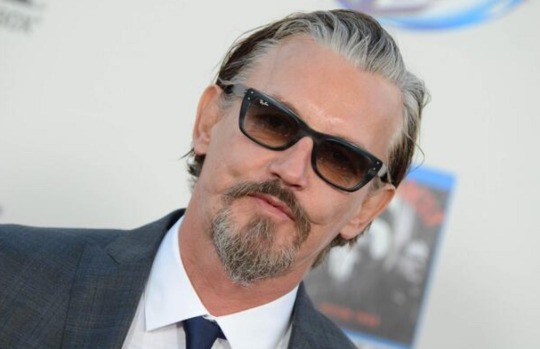
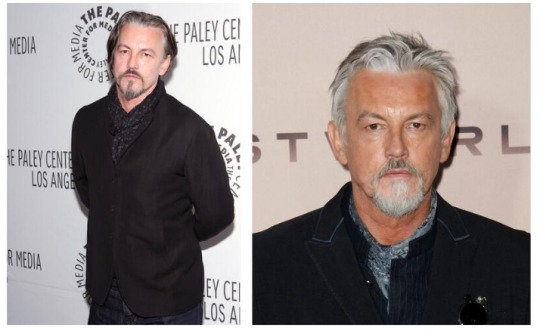
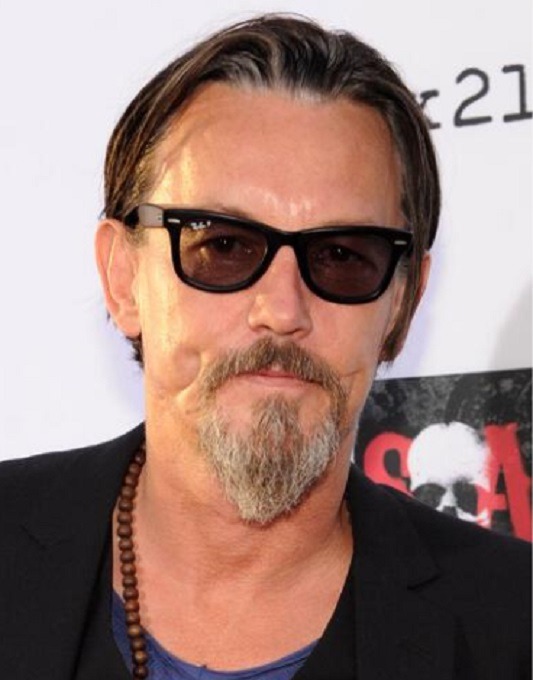
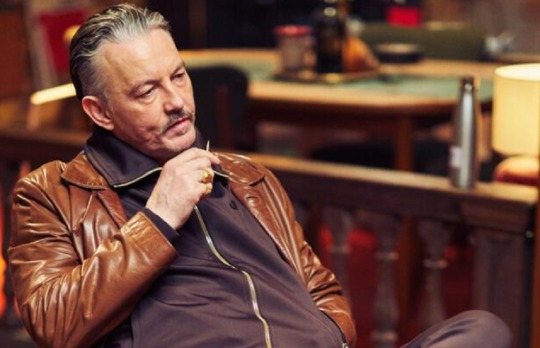
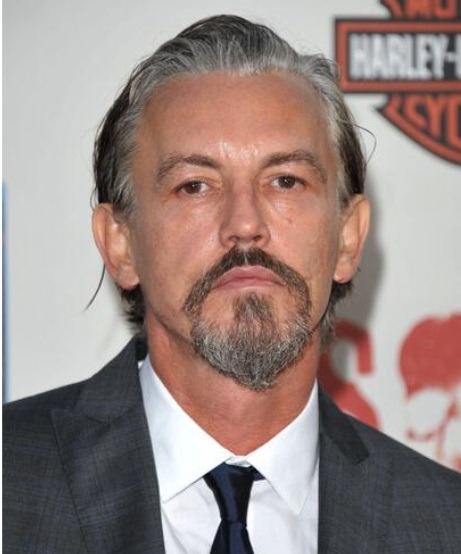
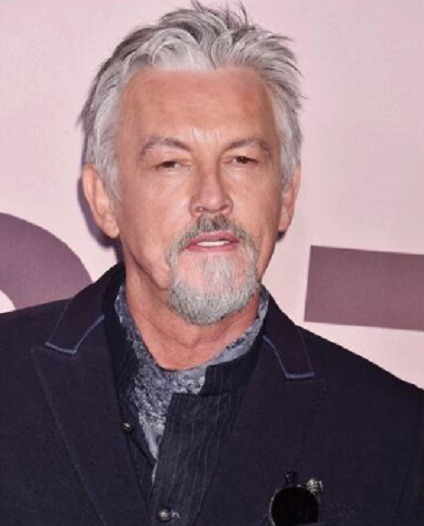
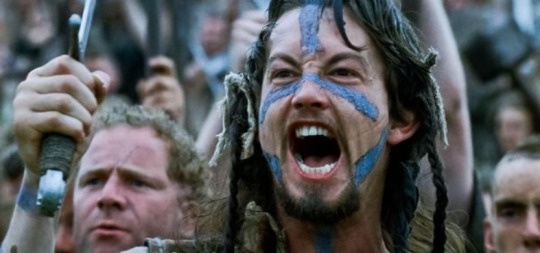

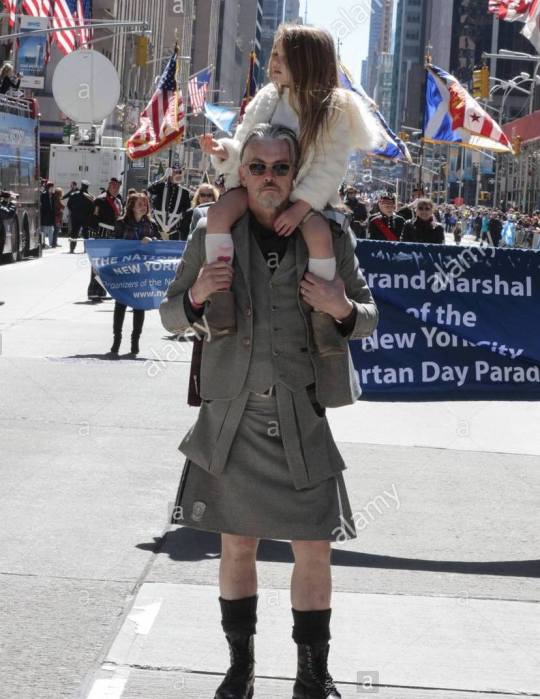
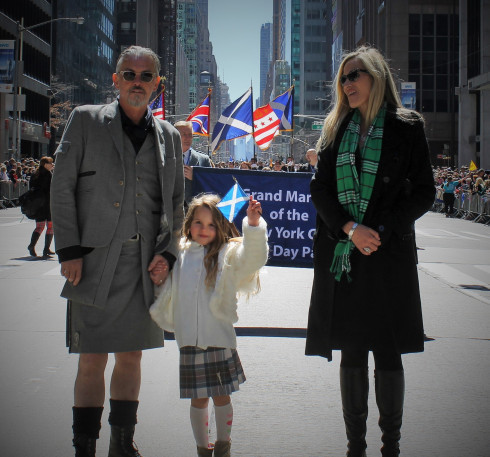
Happy Birthday actor Tommy Flanagan who turns 58 today.
Flanagan was born in Eaterhouse, Glasgow on July 3rd 1965, the former painter and decorator got into acting after a stint DJ'ing and a violent episode which left him with his distinctive scars, he was randomly attacked outside a Glasgow bar, slashed horribly and robbed.
His friend Robert Carlyle then persuaded him to join him with his theatre company, Raindog Theatre, but it was not an overnight success for either of them as Flannagan admitted in an interview neither of them ha “a pot to piss in” he remembers “touring the Highlands in this old blue Transit van, but it had a broken window. It was so freezing inside, one of us had to hold a piece of cardboard up to stop the wind coming in.”
Two years later, he, and almost every other actor in Scotland, appeared in Braveheart. But Flanagan stood out. Mel Gibson told him to come to America. A year later, the Scot did, but the journey west was more about being with his then wife Rachel, an American film producer. Rachel, was from San Diego and he followed her home.
Of course Tommy had appeared in a couple of things beforehand, the obligatory Taggart being the standout, but it was after the William Wallace romp that he got noticed, Rab C Nesbit, A Mugs Game and The Saint followed that, of The Saint, he confirms something I assumed for a few years "Val Kilmer is a prick”.
Tommy got roles in Face Off , The Game and Plunkett & Macleane before the excellent Ratcatcher, set in 1970’s Glasgow and written and directed by fellow Glaswegian Lynne Ramsay, Flanagan plays the main part’s Da, George Gillespie, if you haven’t seen it do so, it’s a great film. One person who agrees with me about Ratcatcher is actress Drew Barrymore, who had seen Tommy in the film and called him up and offered him a part, of the film Tommy admits “You get to have your ass kicked by Cameron Diaz, Lucy Liu and Drew Barrymore. What’s bad about that?” Who gave you the best ass-kicking? “That’d be Lucy.”
Among Tommy’s other films are Trauma, Smoking Aces and Sin City, he was making a steady living in Hollywood but it wasn’t until the part of Filip ‘Chibs’ Telford in Sons of Anarchy in 2008 that people started recognising him for his acting, rather than the glesga guy in the films with scar, he is also an occasional face in the spin off Mayans MC.
The series was an international hit. But Flanagan had mixed feelings about the role. His character was called Chibs, for a start. Flanagan didn’t miss the irony; he’d gone to Hollywood to forget the worst memories of Glasgow life and was playing the sort of creature who’d attacked him.
Flanagan admits to previously playing up to the hard man characters he portrays, but his wild days have been behind him since meeting Dina his second wife, they have been married for 12 years now and they have a daughter together.
Tommy has recently appeared in the TV series’, Westworld and Wu Assassins which are on Sky Atlantic and Netflix respectively. We also seen him in the movie There Are No Saints, teaming up with SOA co-star Ron Perlman and fellow Scot Brian Cox, I wasn’t impressed with the film, but if you like action and gore you might want to give it a go.
I have been more impressed with Tommy in the latest instalments of the Power Book series, where protagonist Tommy Egan heads for Chicago and pits his wits against Walter Flynn, played by Flanagan. The series can be viewed as a stand alone, or you can go back and watch the beginnings in Power, which ran from 2014 to 2020.
Tommy will be back with season two of the gangster saga which is premiering on September 1st. Tommy has two movie projects set for next year, Road Movie Casey and Mary and Sleeping Dogs.
20 notes
·
View notes
Note
I was so excited when he accepted the Christian Grey role because VSHSVSHWHW all my dom dreams were about to became true. So sad when he quit the project (I know he chose best, but c'mon, he, as CG? In that room?).//
So I am a fan of SoA and I remember when Charlie was interviewed after dropping out of 50 shades. He said that he dropped out because he was still filming SoA and the workload and overall pressure of playing the two complex characters at the same time would be too stressful. He said he didn’t like the idea of being Jax Teller, leaving set, getting on a flight and then getting on a set to be Christian Grey. He said that he wouldn’t be able to properly prepare for the role because of it and he had anxiety over it. He was also going to film another movie too.

https://www.hindustantimes.com/hollywood/charlie-hunnam-reveals-he-quit-fifty-shades-of-grey-movie-due-to-nervous-breakdown/story-yy8H6jLYjbyP4JgO7nOWmK_amp.html
I remember this interview!! Charlie was a busy man. But I do think that Crimson Peak was the correct choice. And obviously SOA was always the choice.
4 notes
·
View notes
Note
🍓🥑🥐🦴
🍓-> How did you get into writing fanfiction?
Pokemon! I was obsessed with pokemon and wanted to write my own characters going on their adventures (and it was going to be 4 best friends who learned to navigate the world and do the things they loved). And then at around 13, I got into writing a lot more consistently some self-insert PJO fanfiction and I would like to never, ever read another piece of that dark time
🥑-> you accidentally killed somebody, which mutual(s) do you text for help?
@rainbowrider1290 please hire Mr. Wright to defend me, I swear it wasn't me
🥐-> name on internet reference that will always make you laugh
I suddenly don't know what an internet reference is. What is the internet? (Jared 19. The answer is Jared 19.)
🦴-> Is there a piece of media that inspires your writing?
There's actually a lot! I can say that Rick Riordan really shaped my writing style, though the resemblance has faded over the years since I really developed my own style, but at the beginning, I really tried to emulate his style (the slightly sarcastic main narration voice, a little bit cheeky at times type of writing).
More recently, I'd say Song of Achilles really inspired the way I write. I've started writing in a more poetic way, with prettier turn of phrases. I really loved how beautiful M. Miller's writing is, and I would almost study the beautiful sentences I fell in love with from SoA, so I'd say that really inspired my writing!
Otherwise, again recently, in a more broad way, Jorge Rivera-Herrans' Epic the Musical has really inspired my writing, but in the way that it sparks ideas in my mind and I just need to put those ideas onto paper (and I guess by that standard, most Taylor Swift songs have played a similar role)
2 notes
·
View notes